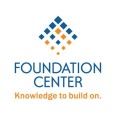Earlier this month I was in Brazil, a country preparing itself to host the biggest sporting event on the planet, the World Cup. The sport is what we call soccer, but the rest of the world knows it as football and nobody plays it better than Brazil. The U.S. made it through the grueling two-year process to qualify, but no one expects the team to get very far in the competition. When you see how obsessed Brazilians are with football, you can understand why they’re so good at it. One small indicator: my sister-in-law bought very stylish Brazilian football outfits so her six-month-old twin granddaughters will be ready for June 12 when Brazil opens the tournament against Croatia. If Brazil wins its sixth World Cup, the celebration will be on a scale that’s unimaginable for most of us — it will make the Super Bowl look like a Sunday school retreat.
If you’ve been following World Cup news, you are undoubtedly aware that Brazil’s plan to showcase to the world its culture, growing economic power, and social progress has not exactly gone as planned. Demonstrations, some of them violent, protesting the expenditure of billions of dollars for luxurious new stadiums and the accompanying forced removal of slum dwellers have filled the streets. Meanwhile, the country continues to be plagued by poor health care, inadequate infrastructure, and urban violence. The phenomenon of its football-obsessed citizenry protesting Brazil’s hosting of the World Cup took the government by surprise and has caused a political crisis: there is growing criticism of endemic corruption, and the country’s president, once a shoe-in for reelection, now faces a tough race. The crisis goes even deeper, however, as growing dissatisfaction with politicians and government institutions morphs into a kind of repudiation of politics and business as usual.
As painful as this is for Brazil and Brazilians, it shows how far democracy in the country has come. In 1970, Brazil’s then-military government cynically promoted the Brazilian football team’s march to its third World Cup championship (Mexico was the host country) to distract attention from a wave of internal repression. Years later, as the dictatorship was losing its grip on power, the tactic was exposed in a banned Brazilian film (though no one dared criticize the dictatorship at the time). Today, as a democratic Brazil prepares to host the Cup for a second time (the first was in 1950), people are protesting in the streets, the media is filled with exposés, political parties are battling it out in the media and Congress, and a young Brazilian has made a YouTube video entitled “No, I’m not Going to the World Cup” that has been downloaded more than 4.2 million times.
While countless Brazilians struggled to move their nation away from dictatorship and toward democracy, philanthropy played a role as well. American and European foundations supported dozens of Brazilian nonprofits advocating for human rights and the rule of law, while think tanks critiqued the government’s economic policies. As the dictatorship began to weaken, foundations backed university research and conferences dedicated to the return of democracy. That funding evolved into support for citizen participation in and public debate of constitutional and political reforms.
For decades now, American foundations have supported pro-democracy groups in countries around the world. It should come as no surprise, then, that foundations are providing the same kind of support here in the U.S. After all, Brazil isn’t the only country whose citizens have grown frustrated with politics as usual! Last week, Foundation Center released Foundation Funding for U.S. Democracy, a new data-driven Web platform. Supported by eight leading foundations, this marks the first time that this important focus area of philanthropy has been clearly defined, delineated, and made fully transparent.
Football (soccer), democratic values, and philanthropy are integral parts of the globalizing world in which we live. If the 2014 World Cup teaches us anything, it is that they are connected in more ways than we can imagine.
Brad Smith is president of Foundation Center.



Comments (0)